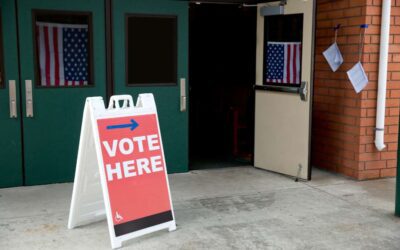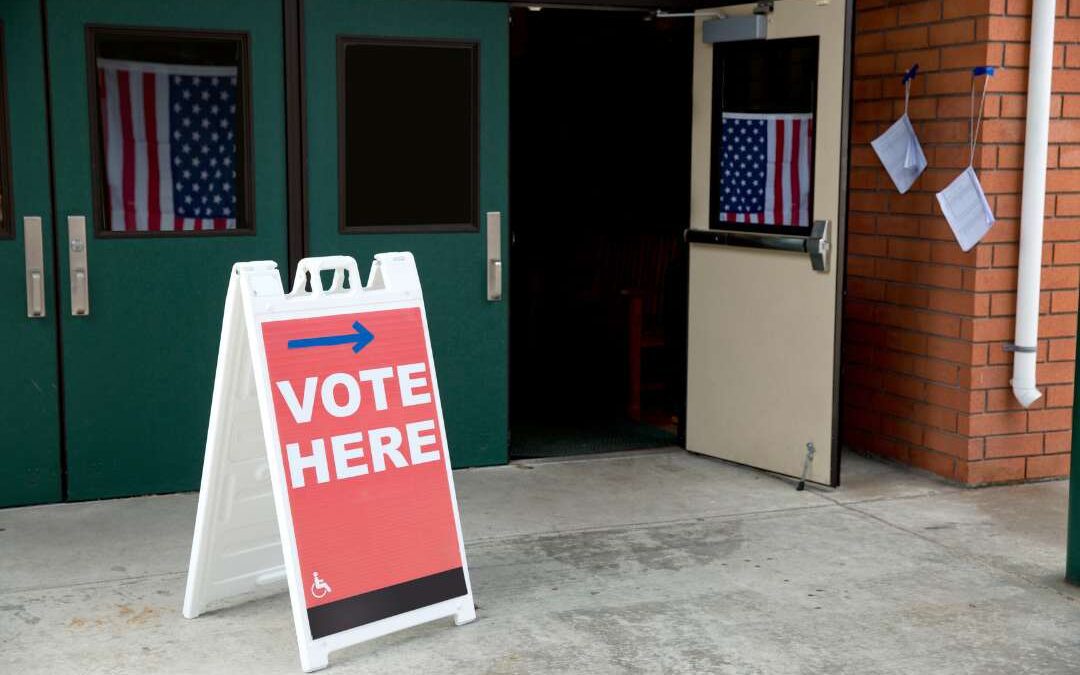On Monday, our nation observed Presidents’ Day. This holiday gives us an opportunity to honor the role and office of President in our country. It also serves as an opportunity to reflect how we as Christians can pray for those who represent us as citizen servants in government matters.
I refer to Romans 13 as the Law and Order passage, reminding me of one of my favorite Gen X shows of all time. Historically, this passage has been exploited in America if you were to ask me. The Negro Bible (also known as the Slave Bible) notes it as the last chapter in Romans, excluding chapters 14–16. The chapter was used to defend slavery by anti-abolitionist ministers, supporters, and politicians.(1) It’s been used by former Attorney General Jeff Sessions when responding to inquiries from the faith community for breaking up families of migrants held in detention(2), as well as Franklin Graham when he discussed police shootings of unarmed citizens. While the passage serves as a template not only describing our role as citizens(3), it also gives a picture and description of what God expects from those operating in leadership within his delegated authority of government. Every delegated authority, from the nationally elected official to the local volunteer board, deserves our attention in prayer.
Those exercising authority should ensure they have good influences.
God didn’t delegate his authority to be used to do the wrong thing, but to do the right thing (Romans 13:3). Do we see any of our citizen servants praising, upholding, or supporting bad actions or conduct of any type? We should be praying for them. Often, they’re being influenced by the wrong people.
We see this example when Rehoboam became king of Israel (1 Kings 12). Wise servants of his father Solomon gave him counsel on how to treat the people of Israel. But he didn’t take their advice. Instead, he listened to some others who told him exactly what his flesh wanted to hear. He wanted to show more strength than his father, which meant his actions would be much harsher. This eventually led to a split in the kingdom because the wrong people were influencing him. What would that influence look like today? It could be social media, television networks, lobbyists, PACs, or constituencies. We should be praying for our servant citizens and that the right voices should be influencing them.
God sees those using His authority as His servants who exercise justice to those who do wrong (Romans 13:4).
The authority is His. Prayer for each of our servant citizens to appropriately use His authority is necessary. This passage says, “for he does not bear the sword in vain.” In other words, they aren’t exploiting this authority for purposes other than serving God and His Will. Unfortunately, Rehoboam had his own will. The wise leaders told him, “If you will be a servant to this people today and serve them, and speak good words to them when you answer them, then they will be your servants forever” (1 Kings 12:6). But he wouldn’t serve the people; he served his own purposes. Do we see any of our citizen servants representing us that are serving their own purposes, their own will, or the desires of those who are negatively influencing them? Are they doing this rather than serving God’s purposes? We should be praying for each of them in this area.
God sees those using His authority as His ministers (Romans 13:5). What is a minister in this context? A minister is one who cares for another. Do our citizen servants care? Do they care for others? Are they caring for all others in their realm, or just certain others? Philippians 2:3–5 reads, “Do nothing from selfish ambition or conceit, but in humility count others more significant than yourselves. Let each of you look not only to his own interests, but also to the interests of others. Have this mind among yourselves, which is yours in Christ Jesus.” We can pray for our leaders in this area.
What we should truly note from this experience of prayer is that these citizen servants reflect us. They are the mirror to those they serve. If they need prayer in these areas, then so do we. We must punish bad actions rather than punish good ones. We must not exploit our authority. Those doing wrong (including ourselves) should be held accountable. After all, we are His servants and His ministers. As we reflect on this and honor the legacy and role of the Presidency, let us also pray fervently for the men and women who have chosen to serve as public servants, while considering ourselves and where we stand. We have much praying to do.
- Harrill, J. Albert, “The Use of the New Testament in the American Slave Controversy: A Case History in the Hermeneutical Tension between Biblical Criticism and Christian Moral Debate.” Religion and American Culture: A Journal of Interpretation 10, no. 2 (2000): 149–86. https://doi.org/10.2307/1123945. (Oxford: Oxford University Press, 1998).
- Lincoln Mullen, “The Fight to Define Romans 13,” The Atlantic, June 15, 2018, available at https://www.theatlantic.com/ideas/archive/2018/06/romans-13/562916/.
- Franklin Graham, “Listen up–Blacks, Whites, Latinos, and everybody else,” Facebook, March 12, 2015, https://www.facebook.com/FranklinGraham/posts/listen-up-blacks-whites-latinos-and-everybody-else-most-police-shootings-can-be-/883361438386705/.
Prayer Requests:
- Pray that those with authority surround themselves with Godly people who are gifted with wisdom.
- Pray that our civil servants would steward their delegated authority with righteousness and justice.
- Pray that our civil servants walk in humility, caring for the needs and interests of others.











